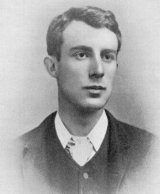Analysis of The Burial of William - the Conqueror
Oh, who may this dead warrior be
That to his grave they bring?
`Tis William, Duke of Normandy,
The conqueror and king.
Across the sea, with fire and sword,
The English crown he won;
The lawless Scots they owned him lord,
But now his rule is done.
A king should die from length of years,
A conqueror in the field,
A king amid his people's tears,
A conqueror on his shield.
But he, who ruled by sword and flame,
Who swore to ravage France,
Like some poor serf without a name,
Has died by mere mischance.
To Caen now he comes to sleep,
The minster bells they toll,
A solemn sound it is and deep,
May God receive his soul!
With priests that chant a wailing hymn,
He slowly comes this way,
To where the painted windows dim
The lively light of day.
He enters in. The townsfolk stand
In reverent silence round,
To see the lord of all the land
Take house in narrow ground.
While, in the dwelling-place he seeks,
To lay him they prepare,
One Asselin FitzArthur speaks,
And bids the priests forbear.
`The ground whereon this abbey stands
Is mine,' he cries, `by right.
`Twas wrested from my father's hands
By lawlessness and might.
Duke William took the land away,
To build this minster high.
Bury the robber where ye may,
But here he shall not lie.'
The holy brethren bid him cease;
But he will not be stilled,
And soon the house of God's own peace
With noise and strife is filled.
And some cry shame on Asselin,
Such tumult to excite,
Some say, it was Duke William's sin,
And Asselin does right.
But he round whom their quarrels keep,
Lies still and takes no heed.
No strife can mar a dead man's sleep,
And this is rest indeed.
Now Asselin at length is won
The land's full price to take,
And let the burial rites go on,
And so a peace they make.
When Harold, king of Englishmen,
Was killed in Senlac fight,
Duke William would not yield him then
A Christian grave or rite.
Because he fought for keeping free
His kingdom and his throne,
No Christian rite nor grave had he
In land that was his own.
And just it is, this Duke unkind,
Now he has come to die,
In plundered land should hardly find
Sufficient space to lie.
| Scheme | ABAB CDCD EFXF GXGE HIHI JKJK LMLM NONO PQPQ KRKR STST UQUQ HVHV DWXW DQXQ AXAX YRYR |
|---|---|
| Poetic Form | Quatrain |
| Metre | 111111001 111111 11011100 010001 010111001 010111 01011111 111111 01111111 0100001 01011101 0100111 11111101 111101 11110101 11111 1111111 010111 01011101 110111 11110101 110111 11010101 010111 1100011 0100101 11011101 110101 10010111 111101 110011 01011 0111101 111111 11011101 110001 11010101 111101 10010111 111111 01010111 111111 01011111 110111 01111100 110101 11111101 010011 11111101 110111 11110111 011101 11001111 011111 010100111 010111 1101110 11011 11011111 010111 01111101 110011 11011111 011111 01111101 111111 01011101 010111 |
| Closest metre | Iambic tetrameter |
| Characters | 2,048 |
| Words | 402 |
| Sentences | 23 |
| Stanzas | 17 |
| Stanza Lengths | 4, 4, 4, 4, 4, 4, 4, 4, 4, 4, 4, 4, 4, 4, 4, 4, 4 |
| Lines Amount | 68 |
| Letters per line (avg) | 24 |
| Words per line (avg) | 6 |
| Letters per stanza (avg) | 96 |
| Words per stanza (avg) | 23 |
Font size:
Submitted on May 13, 2011
Modified on March 05, 2023
- 2:01 min read
- 56 Views
Citation
Use the citation below to add this poem analysis to your bibliography:
Style:MLAChicagoAPA
"The Burial of William - the Conqueror" Poetry.com. STANDS4 LLC, 2024. Web. 27 Apr. 2024. <https://www.poetry.com/poem-analysis/31040/the-burial-of-william---the-conqueror>.


Discuss this Robert Fuller Murray poem analysis with the community:
Report Comment
We're doing our best to make sure our content is useful, accurate and safe.
If by any chance you spot an inappropriate comment while navigating through our website please use this form to let us know, and we'll take care of it shortly.
Attachment
You need to be logged in to favorite.
Log In